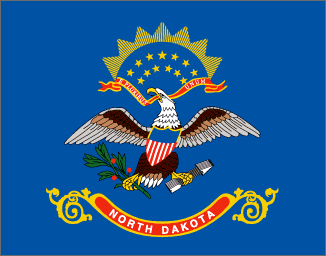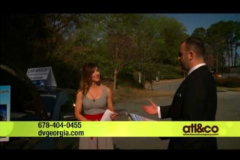 In North Dakota, the statute of limitations on torts is 6 years, this means that you need to file suit against the at fault driver within 6 years of the accident.
In North Dakota, the statute of limitations on torts is 6 years, this means that you need to file suit against the at fault driver within 6 years of the accident.
If the insurance company is offering you an unfair loss in value amount, you need to hire an independent appraiser to rebut their valuation.
You can also escalate the claim by contacting the North Dakota Insurance Commissioner.
To get the process started and to get a free estimate, please fill out the form below.
Insurance Bad Faith in North Dakota
Citation: N.D. Cent. Code §26.1-04-03(9)
CHAPTER 26.1-04
PROHIBITED PRACTICES IN INSURANCE BUSINESS
26.1-04-03. Unfair methods of competition and unfair or deceptive acts or practices
defined.
The following are unfair methods of competition and unfair and deceptive acts or practices
in the business of insurance:
…
9. Unfair claim settlement practices. Committing any of the following acts, if done without
just cause and if performed with a frequency indicating a general business practice:
a. Knowingly misrepresenting to claimants pertinent facts or policy provisions
relating to coverages at issue.
b. Failing to acknowledge with reasonable promptness pertinent communications
with respect to claims arising under insurance policies.
c. Failing to adopt and implement reasonable standards for the prompt investigation
of claims arising under insurance policies.
d. Not attempting in good faith to effectuate prompt, fair, and equitable settlements
of claims submitted in which liability has become reasonably clear.
e. Compelling insureds to institute suits to recover amounts due under its policies by
offering substantially less than the amounts ultimately recovered in suits brought
by them when the insureds have made claims for amounts reasonably similar to
the amounts ultimately recovered.
f. Making known to insureds or claimants a policy of appealing from arbitration
awards in favor of insureds or claimants for the purpose of compelling them to
accept settlements or compromises less than the amount awarded in arbitration.
g. Attempting settlement or compromise of claims on the basis of applications which
were altered without notice to, or knowledge or consent of, insureds.
h. Attempting to settle a claim for less than the amount to which a reasonable
person would have believed one was entitled by reference to written or printed
advertising material accompanying or made a part of an application.
Page No. 3i. Attempting to delay the investigation or payment of claims by requiring an insured
and the insured’s physician to submit a preliminary claim report and then
requiring the subsequent submission of formal proof of loss forms, both of which
submissions contain substantially the same information.
j. Failing to affirm or deny coverage of claims within a reasonable time after proof of
loss has been completed.
k. Refusing payment of claims solely on the basis of the insured’s request to do so
without making an independent evaluation of the insured’s liability based upon all
available information.
l. Providing coverage under a policy issued under chapter 26.1-45 or 26.1-36.1 for
confinement to a nursing home and refusing to pay a claim when a person is
covered by such a policy and the person’s physician ordered confinement
pursuant to the terms of the policy for care other than custodial care. Custodial
care means care which is primarily for the purpose of meeting personal needs
without supervision by a registered nurse or a licensed practical nurse.
m. Failure to use the standard health insurance proof of loss and claim form or
failure to pay a health insurance claim as required by section 26.1-36-37.1.
It is not a prohibited practice for a health insurance company with participating provider
agreements to require that a subscriber or member using a nonparticipating provider
be responsible for providing the insurer a copy of medical records used for claims
processing.
Loss in Value Questionnaire (Will take 2 minutes of your time)
Please fill out the form below to receive a FREE Diminished Value estimate.






